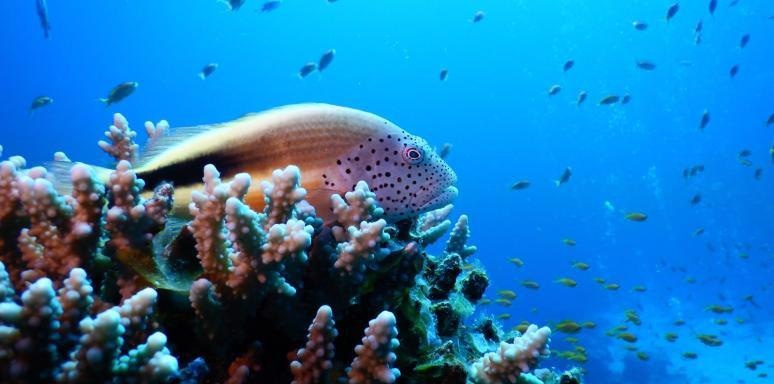Apr 20 2021
Coral reefs are believed to be one of the most biologically diverse ecosystems found on the planet. Corals found in the northern Red Sea and on the Gulf of Aqaba exhibit remarkably extreme tolerance to increasing seawater temperatures, which is now the case due to global warming.

Image Credit: Bar-Ilan University.
Due to this property, coral reef researchers named this region as a possible coral reef refuge under conditions of climate change—a reef where corals might thrive longer compared to others that are being lost at a shocking rate as a result of human pressures.
But global climate change will also lead to more unstable weather patterns, like extreme cold periods. A few scientists estimate that the Red Sea region is getting into a cooling phase. Thus, scientists from Bar-Ilan University and Interuniversity Institute for Marine Science in Eilat performed an experiment to examine the impact of an exceptionally cold winter on corals from the Gulf of Aqaba.
In a study recently reported in the journal PeerJ, the researchers have illustrated that a winter season even 1 °C cooler than average leads to a physiological stress response similar to that observed in other corals under heat stress. This finding demonstrates, for the first time, how critically close the Gulf of Aqaba corals survive to their lower temperature threshold.
Early studies that were performed by the research group of Professor Maoz Fine, of Bar-Ilan University’s Mina and Everard Goodman Faculty of Life Sciences, have employed regulated experiments in the Red Sea Simulator System to unravel locally abundant corals to higher seawater temperatures predicted to take place within and beyond this period.
Several experiments discovered that corals in this region have a remarkable tolerance to high temperatures, which destroy corals that are present somewhere else in the world. Professor Fine’s laboratory and scientists from other groups have tested several coral species and at various phases of their life cycle, such as the larval and reproductive phases, which are normally more sensitive to environmental change; all demonstrate comparable tolerance.
Whilst we have repeatedly demonstrated the high temperature tolerance of corals on the shallow reefs in Eilat, we wanted to test the possibility that this exceptional heat tolerance comes with the trade-off of being cold-sensitive. Indeed we found that exposure to cold water periods causes a physiological response akin to bleaching.
Dr Jessica Bellworthy, Bar-Ilan University
Bellworthy conducted her doctoral research in Professor Fine’s laboratory.
Coral bleaching is best known as a response to high water temperatures and is the loss of algal symbionts that should be present inside the coral tissue to offer energy to the coral. In the lack of symbionts, the probability of coral mortality tends to be high.
Coral bleaching is considered the main reason for the decrease in corals in the world at present. Thus, corals from the Gulf of Aqaba have the ability to bear very high temperatures, but even an acute cold spell might result in bleaching in this population.
But Bellworthy and Fine’s cold stressed corals did not perish and recuperate as soon as the water temperatures turned normal. Experimental corals were retained at normal temperatures and subjected to a second test—an anomalously hot summer.
It was an important discovery for us to understand that even those individuals that suffered the cold winter stress, still did not bleach at the high temperatures.
Dr Jessica Bellworthy, Bar-Ilan University
This is great news for the corals present in the Gulf of Aqaba. The high thermal tolerance does not vanish and hence corals must not undergo two bleaching events during the same year, a risk faced by others like the Great Barrier Reef in Australia.
Coral reefs are considered to be extremely sensitive to changes in temperature. Thus, determining those that react differently to thermal stress helps gain better insights into the environmental adaptation mechanisms in corals. Besides, scientists can concentrate on preserving and investigating such special reefs.
Journal Reference:
Bellworthy, J & Fine, M (2021) Warming resistant corals from the Gulf of Aqaba live close to their cold-water bleaching threshold. PeerJ. doi.org/10.7717/peerj.11100.